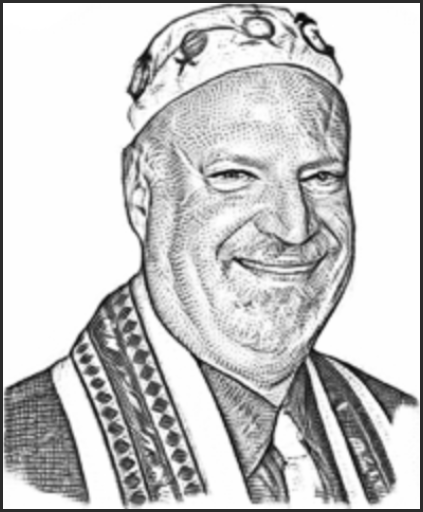Amongst the many things that Passover highlights is the essential role that children play in Judaism. We are often told within the Torah to teach our children the story of our Exodus from Egypt. Our responsibility is to encourage our children to ask questions of all types and to ensure they properly celebrate the joy of being free.
Sitting at Seder tables on the first two nights of Passover, we explicitly tell our children that we are “here, and observing this ritual, because of them.” Our children are our builders, and we are trying constantly to give them the spiritual tools by which they will build a solid foundation for themselves and our People.
The Mishnah, 1800 years ago, instructs every Jewish parent to give the children appropriate food and toys before our seders begin to maintain their interest. The highlight of every Seder is the custom of hearing the youngest child recite the Mah Nishtana, the four questions to “Why is this night different from all other nights.” The ultimate “trick” of the rabbis to keep children engaged throughout the Seder was to hide the afikomen, the piece of matzah broken off at the beginning of the Seder. The children search after dinner for the afikoman and, upon finding it, return it for a prize and transition with joy into the final portion of the seder ritual. Every Jew who participated in a Passover seder as a youth recalls the pleasure of the afikoman search.
At our seders, we teach our children “Avadim Hayyinu,” “once we were slaves to Pharaoh in Egypt.” We recall that it was our children whom Pharaoh ordered to be cast into the Nile River and condemned to death. Rabbinic legend teaches that Pharaoh’s cities were cemented by the blood of Jewish infants between each brick that the Israelite slaves were forced to lay in Egypt.
God redeemed us from slavery, not just because our people were suffering physically, but because our children were at risk of losing both their bodies and souls in the house of bondage. We recall our slavery, with an emphasis on our children, because we want our children to internalize the lessons of love. It is because we were slaves in Egypt that God commands us to recall our bondage and always ensure that we love the “strangers within our midst.”
Judaism teaches us to see beyond our historical experiences of oppression and ensure we are constantly affirming life. Our responsibility is to sensitize our children to how love is the most potent response to hate. Even our enemies who perish, we take no joy in this needing to take place. When we recall the ten plagues, we utilize red wine and place a drop on our plate for each plague recited. Each drop symbolized the blood that was sadly shed; our full cups of wine are diminished with each drop removed from the cup because Pharaoh tragically would not relent to God’s moral will. We tell our children that we diminish our celebration of Passover because it came with the suffering of the ancient Egyptians, our oppressors.
Our Passover observance makes our children realize the necessity of living a life of morality and love. They become inundated with the Divine Imperatives to live their lives, never forgetting the history of our oppressions and the demands that we never do the same and relieve the sufferings of others.
With this year’s celebration of Passover, we should ask ourselves: “What lessons do we want our children to learn?” With our Holiday celebration, we can celebrate our Jewish heritage and teach our children their “way of life.” We can teach them the mitzvahs of love, goodness, kindness, and reconciliation. We can teach them how to live their lives independently, but our 3800-year history should guide them with each step they take on life’s journey.
B’Shalom U’vracha – With Peace & Blessings!!
Mitchell M. Hurvitz
Senior Rabbi Temple Sholom
Past President of the Fellowship of Clergy
Temple Sholom’s Senior Rabbi Mitchell M. Hurvitz is a scholar, teacher, community activist and preacher, and is recognized as one of the prominent religious leaders in the Greenwich area and beyond. A frequent guest speaker at synagogues and churches, study groups, community institutions and universities, he is a charismatic personality who engages individuals and stimulates hearts and minds. His teachings can be found in the New Canaan Sentinel and in other local and national publications.


